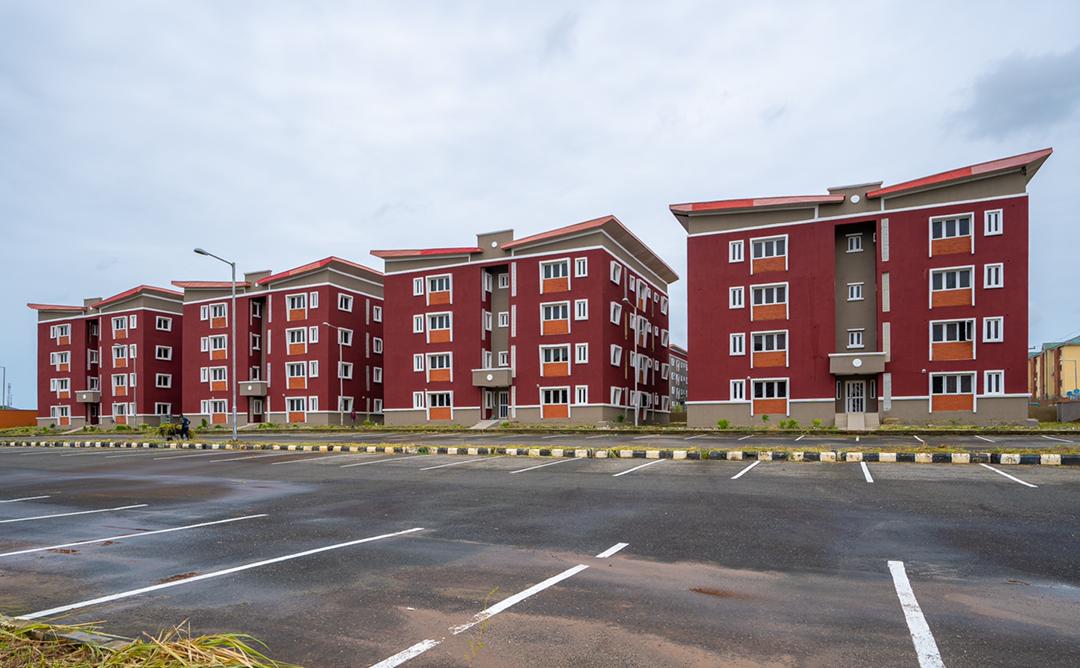Come January 2026, the Nigeria Tax Act will take effect to align the country’s tax system with global standards. But experts argue that the success of the reform will depend on execution, consistency, and engagement. If the government uses tax proceeds to enhance mortgage financing, upgrade land administration, and incentivise affordable housing, the long-term benefits could outweigh the short-term pain, CHINEDUM UWAEGBULAM reports.
Nigeria’s new tax regime is poised to redefine the country’s real estate and housing finance landscape as the Federal Government rolls out sweeping reforms under the Nigeria Tax Act 2025 and recent Finance Acts.
While the reforms aim to boost revenue and align Nigeria’s tax system with global standards, analysts warn that they could have far-reaching consequences for property ownership, housing affordability, and investment flows.
For now, the real estate sector stands at a crossroads between the promise of fiscal reform and the risk of over-taxation. The outcome will depend on how effectively government, investors, and regulators balance revenue generation with the need to expand access to decent housing.
A new tax era for property investors
THE Act, which takes effect in January 2026, introduces provisions to curb tax evasion and widen the revenue base. These provisions include a “top-up tax” on multinational groups, stricter Controlled Foreign Company (CFC) rules, and clearer definitions for taxable capital gains.
Although largely targeted at multinational and offshore entities, the effects will ripple through the real estate market. Many developers depend on foreign Special Purpose Vehicles (SPVs) to finance large projects. Under the new framework, these structures will face greater scrutiny from the Federal Inland Revenue Service (FIRS) and potential exposure to higher taxes.
The law compels multinational investors to disclose profits earned in Nigeria, reducing opportunities for income shifting offshore. While this enhances transparency, it could raise effective tax rates, prompting some investors to rethink their exposure or restructure financing to stay competitive.
The reform also tightens the Capital Gains Tax (CGT) framework, ensuring that any disposal of land, buildings, or shares in property-holding companies attracts CGT on actual gains. Previously, developers often sidestepped this by selling company shares instead of the underlying properties.
Some experts see this as a fairer system that closes loopholes. Others worry it could discourage investment, especially in the high-end and commercial segments where margins are already strained by inflation and rising construction costs.
Stamp duties and luxury property tax
ONE of the most contentious elements is the adjustment of stamp duties on property leases and transactions. Leases above N10 million will attract higher duties, while smaller residential leases may remain exempt. Practitioners warn that this could make leasing more expensive, particularly in Lagos, Abuja, and Port Harcourt, where rents are already high.
Proponents, however, argue that stronger stamp duty enforcement will formalise Nigeria’s largely informal rental market and bring transparency to lease agreements.
Another proposal attracting attention is a yearly luxury property tax targeting high-value residential assets in prime locations such as Ikoyi, Banana Island, Maitama, and Asokoro. The proposed 1.5 per cent rate on market value aims to make wealthier homeowners contribute more to public revenue. Critics, however, argue that it could distort the high-end market without addressing the country’s wider housing deficit.
Implications for developers and lenders
BANKS and mortgage institutions are also reassessing the implications of the new framework. Higher transaction costs and corporate levies may raise borrowing costs and restrict credit flow to developers and homebuyers.
Rising taxes on property transactions, whether on capital gains or stamp duties, could inflate the overall cost of delivering housing. Some analysts believe the reforms might eventually strengthen mortgage-backed housing finance if tax revenues are reinvested in housing infrastructure and credit guarantees. In the short term, however, the sector faces higher costs and tighter liquidity.
The Real Estate Investment Trust (REIT) segment, a key bridge between capital markets and property, faces its own uncertainty. Under existing FIRS guidelines, REITs and Real Estate Investment Companies (REICs) enjoy tax exemptions if they meet disclosure and dividend distribution conditions. But inconsistent interpretation of the new rules could unsettle investors. Given that Nigerian REITs already struggle with low confidence and weak returns, regulatory clarity will be crucial to avoid further stagnation.
Beyond new levies, compliance itself will become a major challenge. FIRS is digitising property valuation and transaction tracking, while state governments are modernising land registries to improve data sharing.
Mixed fortunes for developers
THE Chief Executive Officer of Northcourt, Ayo Ibaru, described the exemption of residential properties from VAT as a welcome development. “It will help reduce development costs and ease financial pressure on developers,” he said. “However, it’s unlikely to lead to a significant reduction in housing prices.”
According to him, lower transaction costs on leasing could encourage more activity in both residential and commercial markets. The broader scope of recoverable input VAT, now covering services and fixed assets incurred for taxable supplies, also benefits developers.
He explained that developers can recover VAT paid on construction materials and professional services. The exemption of capital gains on the sale of personal residential property, he said, will further stimulate investment by reducing the tax burden on property sales.
VAT exemptions on dividends distributed by REITs could also improve investor returns, attract more capital and reinforce transparency. Ibaru urged the government to introduce targeted tax incentives for developers focusing on green and affordable housing, such as tax credits and faster approval processes.
He also welcomed new rent relief allowances for individuals, which replace consolidated and personal reliefs. “Combined with zero per cent VAT on essential goods and services, these measures could marginally improve household disposable income and support housing affordability,” he said.
Risks and opportunities
PRESIDENT of Proptech Nigeria, Dr Roland Igbinoba, said the Act will reshape not just the cost of property development but the entire real estate ecosystem. “For foreign investors, the Act recognises double tax treaties with certain countries. For REITs, this is a game changer,” he said.
“However, CGT has moved from 10 per cent to 30 per cent. For REITs and SEC-regulated transactions, there are optimisation windows, but developers must seek professional guidance.”
He added that the reforms are designed not only to increase government revenue but also to create an efficient, globally aligned tax system. “If properly implemented, they can bolster housing delivery as long as developers and financiers understand how to navigate them,” Igbinoba said.
According to him, while rental income from residential and commercial real estate remains exempt from VAT, the law now allows input VAT claims on all purchases, including services and fixed assets. This, he said, will improve cost recovery for serious players.
An estate surveyor and valuer, Olufemi Oyedele, observed that well-designed tax reforms can promote transparency, professionalism, and accountability within the property market. He predicted that wealthy investors would naturally migrate to more tax-efficient segments while urging the government to avoid worsening the housing affordability crisis. “Authorities should tax completed but empty houses and strengthen the mortgage system so low- and middle-income earners can access home loans,” he said.
Experts are also calling for targeted incentives to complement the new taxes, such as VAT waivers on building materials, accelerated capital allowances, and tax credits for developers delivering low-cost homes.
Need for transparency and stakeholder engagement
IBARU noted that new disclosure rules for tax planning arrangements would improve transparency in the real estate sector. Digital reporting systems, he said, will make it easier to track transactions and reduce opportunities for fraud.
However, he called for periodic stakeholder engagement to ensure collaboration and accountability. “Regular reviews of adoption challenges, awareness campaigns on tax obligations, and the establishment of a specialised Tax Appeal Tribunal for real estate matters are essential,” he added.
Igbinoba, who also heads Propcrowdy Limited, advised continuous dialogue between the government, real estate, and tax professionals to ensure clarity and compliance. “The new law provides better structure and predictability than the old ones. Over time, it will help create a more attractive investment climate for Nigeria’s property market,” he said.
Oyedele emphasised the need for regulators to balance revenue generation with market stability, especially as luxury property tax and stamp duty enforcement intensify.
“Luxury property tax and stamp duty are control policies targeting speculative investment. But when enforcement starts hurting market stability, regulators must adjust,” he cautioned.
He also recommended creating a monitoring department within the Federal Ministry of Housing and Urban Development to evaluate the impact of these taxes on property values and investment flows.






